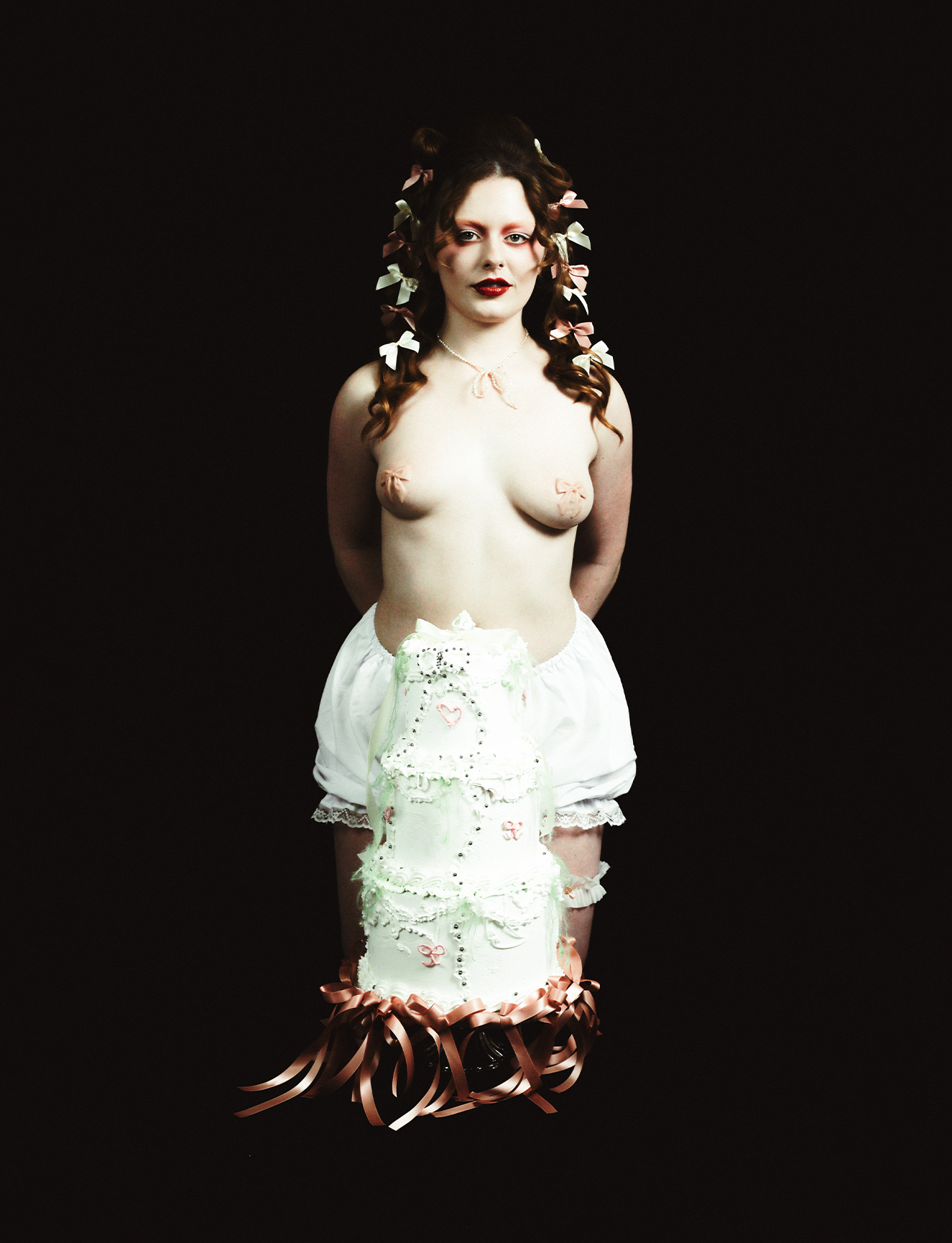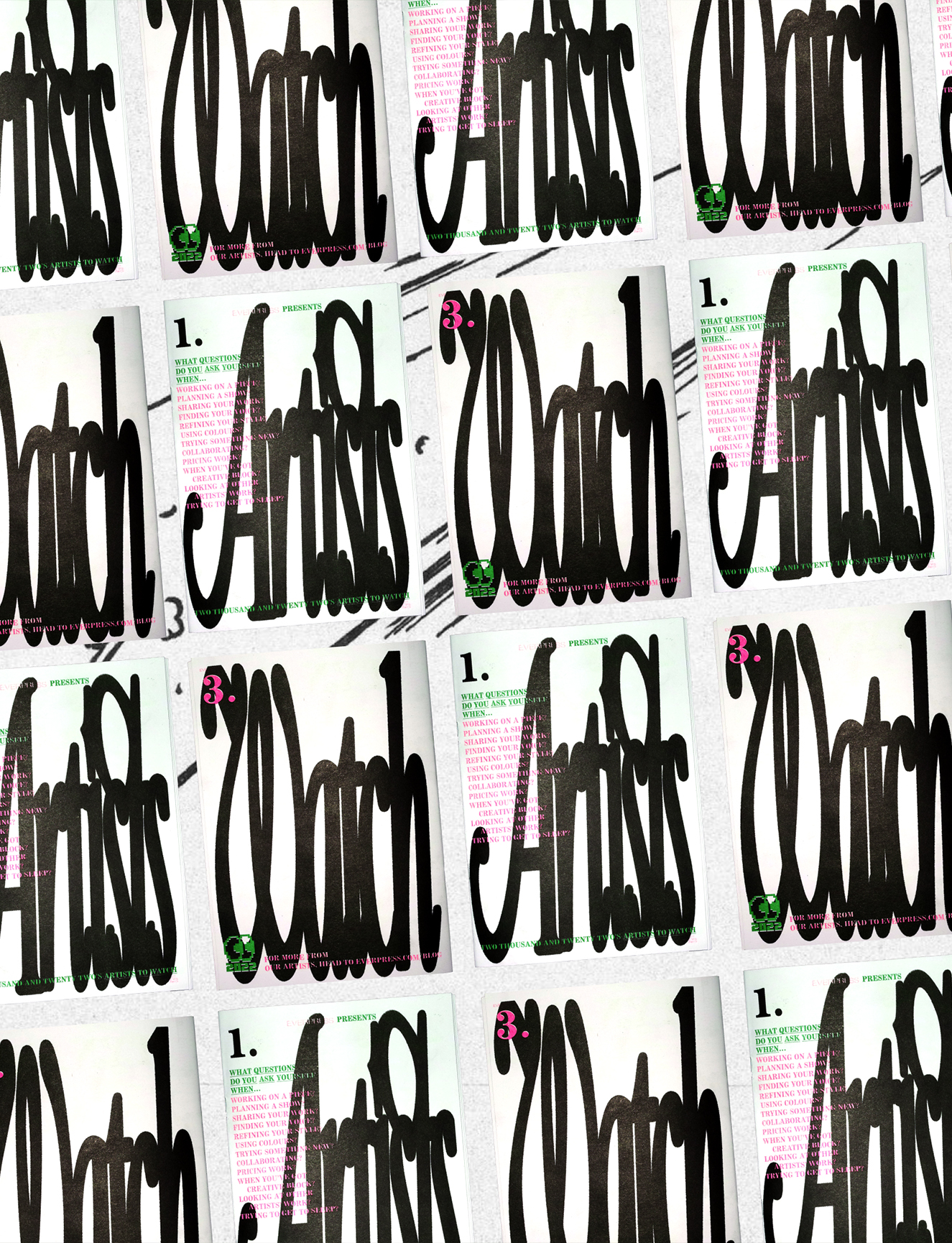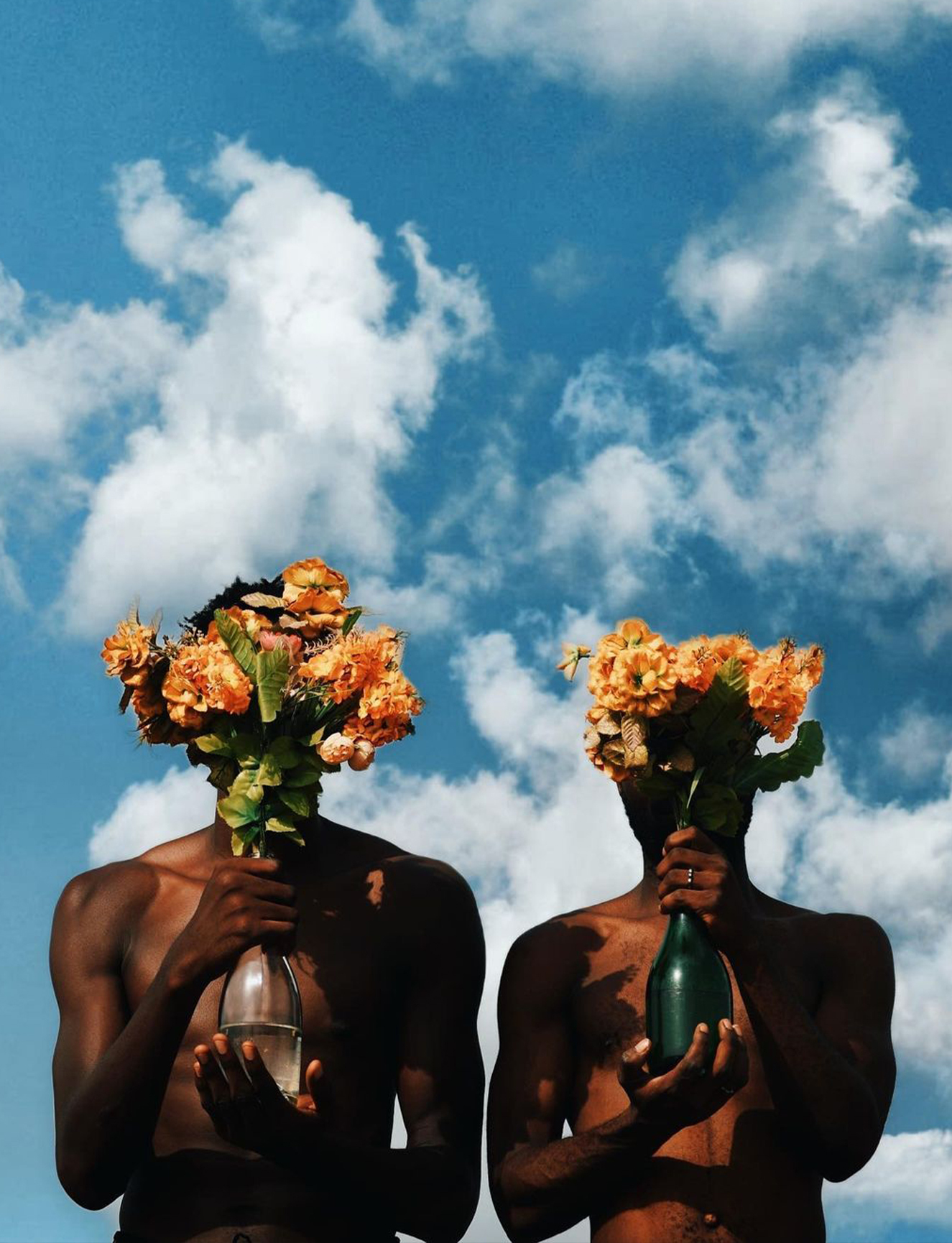How did the idea for a calendar come about?
Lulu Vicedomini: In a way it all started because Sabrina went away to Australia for a while. Before that we’d been at university together, and I knew Tally, and we had always thought that one day we would like to work together, to see how it would fuse. Then Sabrina went to Australia, and for a while I was here working in a bar, which wasn’t great. When she came back both of us were at the stage of thinking, “We haven’t done something just for ourselves in a while, making something for the sake of it as we would in university.”
Sabrina Scassa: The calendar is quite horror-inspired. When I came back from Australia I was thinking a lot about the Chris Cunningham video for the Aphex Twin song “Windowlicker”, and the weird, scary prosthetics of that music video. Often in our projects, Lulu and I, we try to explore the weird, the uncanny, and so here we were thinking of doing something that goes against the classic calendar stereotypes. So that was the beginning, literally a Chris Cunningham video, and from there everything started.
Lulu Vicedomini: I guess also in all of our practices – Sabrina, Tally and I – we’ve all looked at the same reference points, and then we’ve engaged in different ways and from different perspectives. But we’ve all tended to start by looking femininity through the lens of horror, and we actually all individually wrote our university dissertations about this.
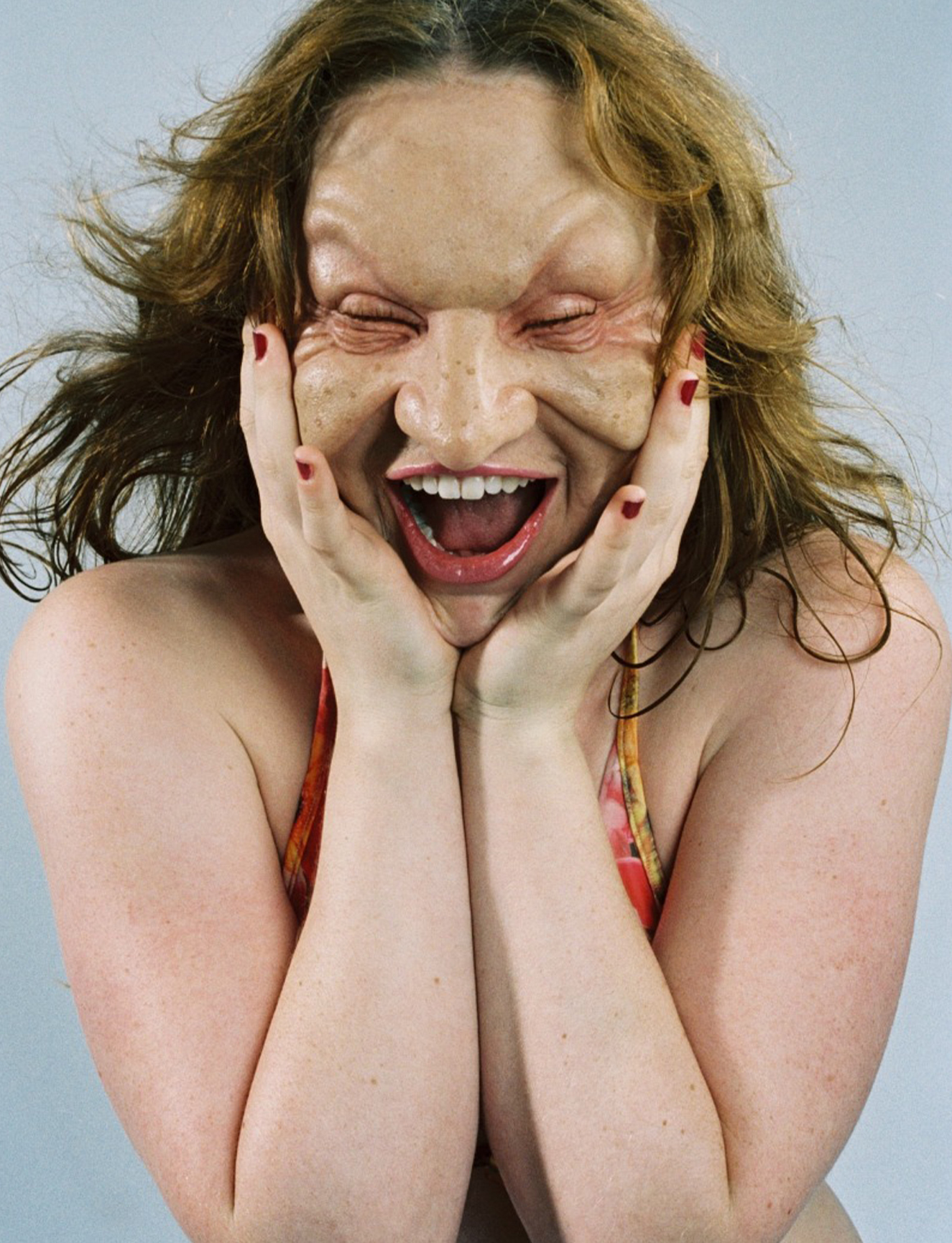
Tell me a little more about this exploration of femininity?
Tally Francis: Individually we’ve all explored I guess what you’d call the ‘weirdness’ of being female. How you are perceived, how that’s perceived within the media and how different outlets and different forms of media portray that. We’ve spoken a fair amount about advertising, and how big conglomerates use the female body, how it intersects with consumerism, all those things.
So I think part of our approach has been quite horror-centric, which has been really fun, because yes, it is horrific, it’s pretty shit, sometimes. But there’s also been a lot of humour throughout, which tends to be a feature of all of our work, and which has been a really fun way of approaching this. Taking the weirdness and uncomfortableness and amping it up even more, it’s like saying, “Yeah, this is super freaky, but I’m into it.”
Our approach has been quite horror-centric
Sabrina Scassa: We were looking at things like 1960s cigarette ads, and thinking about calendars of the early 2000s, people like Paris Hilton. Lulu was born in Italy, and I grew up in Italy. So we were shaped by figures like Prime Minister Berlusconi, and the dominance he had in the media of that time.
Lulu Vicedomini: He more or less took over the media, and TV was aimed at a specific demographic. This began in the early 1980s, the Italian boom, and in a way he was representing that time, and that time was all about: women, sex, money. That’s what we grew up with, and we were bombarded with this kind of imagery from a very early age. I can remember ads with half naked women painting a car, and I never questioned it as a child, it was just there. But subconsciously it sticks and lingers.
I feel like I’m noticing more and more artists bringing calendars out, do you think this trend perhaps played into it, or was it strictly childhood memories?
Tally Francis: That probably subconsciously came in a bit. We were speaking about this the other day, and I think there’s something in the fact that a lot of things now, not just industry-based, but more generally in the world, can feel pretty rubbish. Everything feels a bit uncertain at the moment, and it can be quite scary.
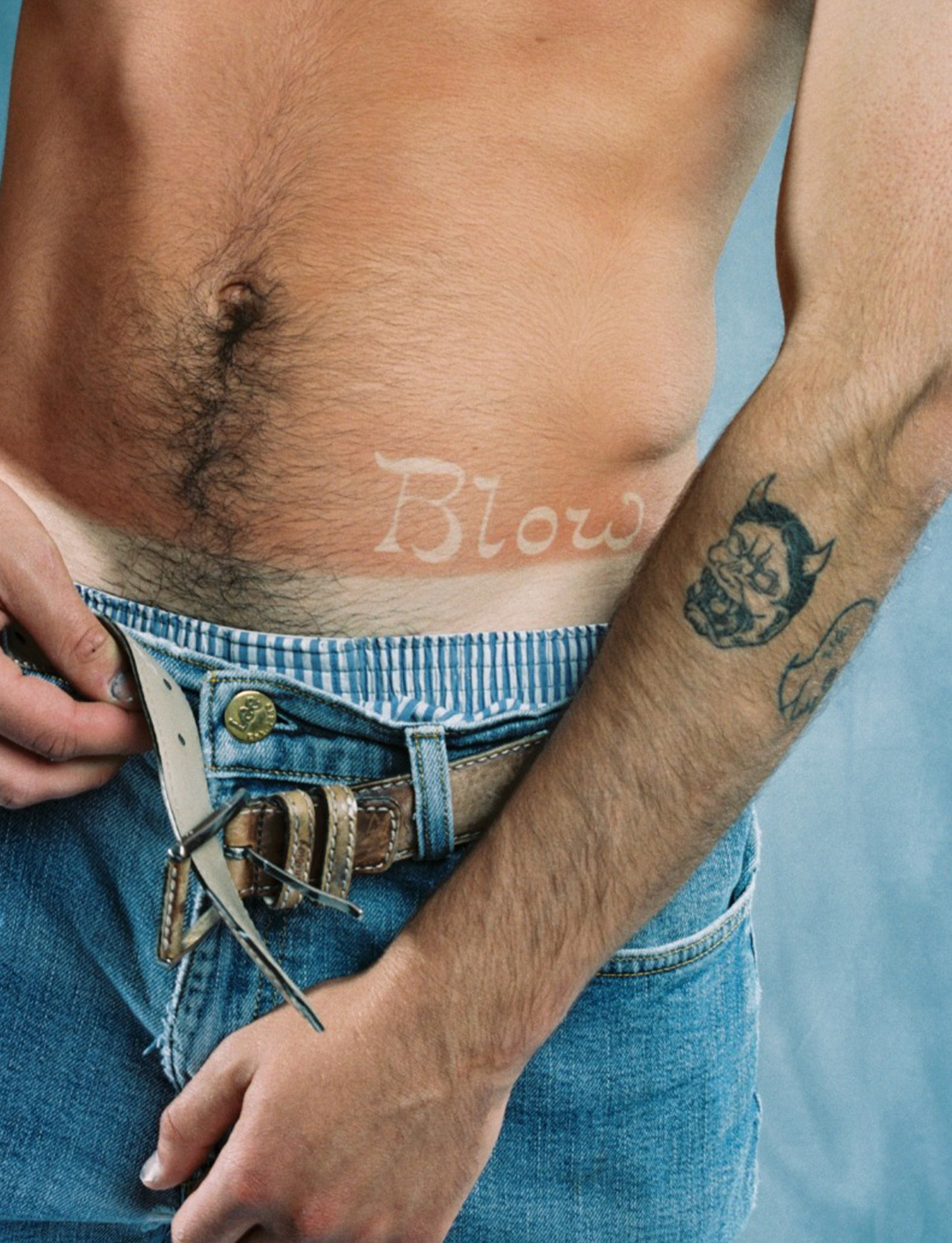
For me it feels like there is, and this ties to what Lulu was speaking about, an impulse to reconnect to parts of our childhood. There is often a heavy nostalgia to what we explore in our work, and I think the calendars are really linked to that. I think that we live in these sort of cyclical stylistic waves, and we’re at a point right now where everyone is thinking, “I feel really nostalgic, life is a bit rubbish, I just want to watch old series and have that comfort of not having to think so incredibly hard, or far, about everything.”
There’s a real comfort in the simplicity, humour and nostalgia of calendars, and it’s a format that we all recognise. It’s something that you can really experiment with and have fun with, in terms of the content that you put in it, and then it will be there for the whole year. It’s so nice to think that we’ve made something that we can then look at, as an evolving project, every month for the next 12 months.
Do you think of this as a feminist project? Would you define it as that?
Tally Francis: Yeah, I think so. You guys may disagree with me, but I feel that because the pendulum has swung to a certain extent, that there’s now almost a wave where it’s not cool anymore to call something feminist. But I think “Blow” is feminist project, at its heart.
Lulu Vicedomini: The world of calendars, and the world of raunchy comedies, has always been male-dominated. So it feels important for us to do it from our own perspective, where we’re not trying to objectify the character, who is, by the way, our flatmate and close friend.
Sabrina Scassa: She’s really enjoyed the process, she said, “Oh! I didn’t imagine that I could feel so confident in front of the camera.” And she was looking at the pictures after the first photoshoot, and she said, “Wow… I’m kind of hot!” To know that she struggled with her body, and that this was a way for her to feel good, not for men but for her, that to me is the winning aspect of this project.
It’s been a way to reclaim everything
Lulu Vicedomini: I don’t know, I don’t want to make big statements, but I feel that for us it’s been a way to reclaim everything we’ve talked about so far, and from our own point of view. Three young girls who have grown up in a specific time, who were also the first generation that experienced and consumed media in a different way. We’re trying to occupy a space that for a long time, was never ours. We just passively consumed it, and didn’t really understand it. And now we’re trying to make sense of it.
How did you all find the experience of working together?
Tally Francis: In skills we cross over in different ways, which has been really nice. We’ve kind of been able to lend our talents in certain ways for this project, and then collaborate with each other in different ways to make it come together. The biggest thing logistically has probably schedule clashes. I mean I don’t know how you two have managed with living together too?
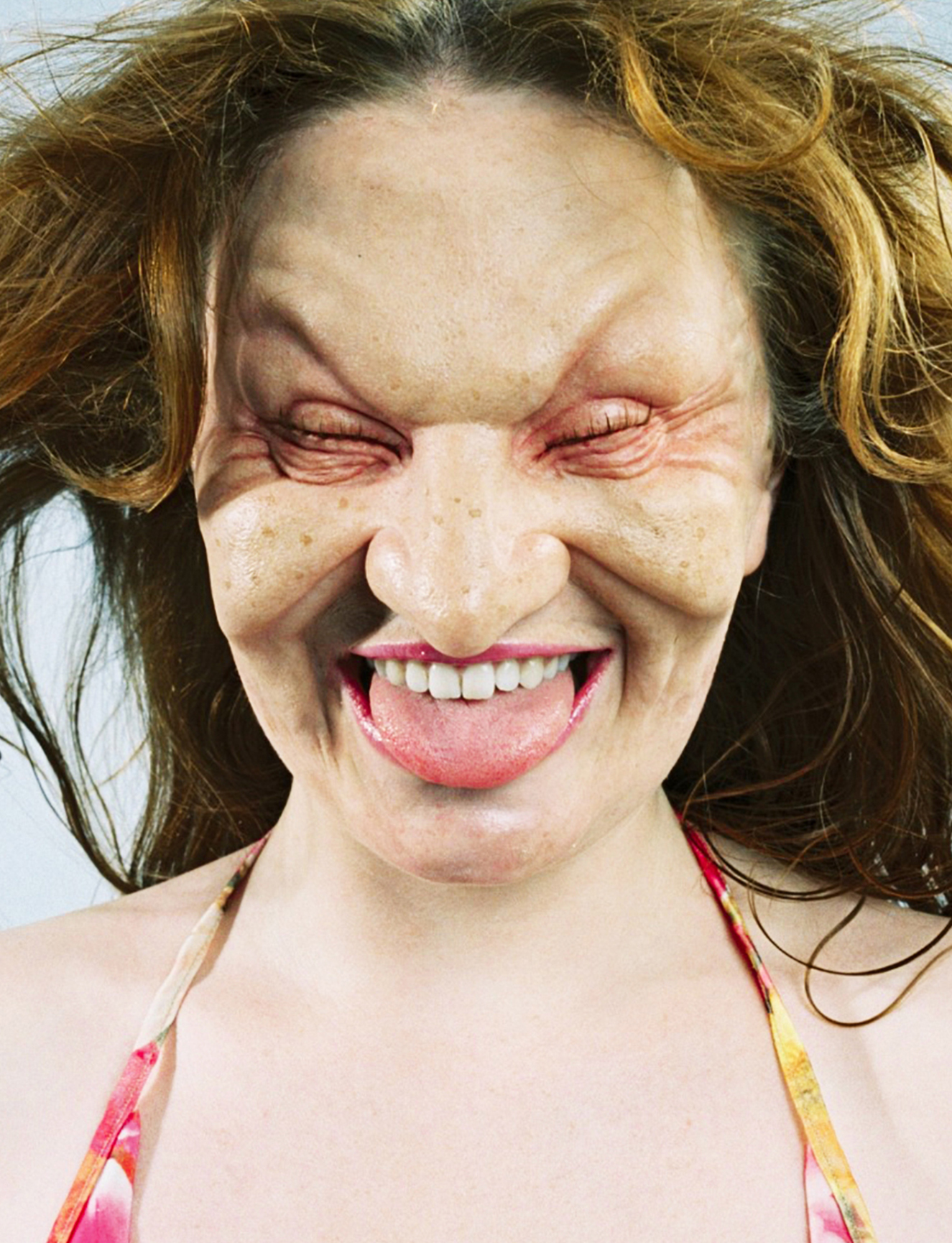
Sabrina Scassa: We call each other a divorced couple. You’ve been living together for a long time, you spent lots of money in therapy, you went through the heartbreak…
Lulu Vicedomini: Sometimes I have the kids, sometimes Sabrina has the kids. Then we meet for dinner and have a chat.
Sabrina Scassa: When it’s time to take a break, we know without saying. And when we want to spend some time together and work together, it comes organically. We don’t need to tell each other, “Let’s do another project.” It’s just natural.
And what about juggling it alongside everything else you do?
Tally Francis: What’s been really nice about this project is that, probably particularly because we are all working full-time, we’ve been treating “Blow” as, “This is something that I want to do and to get pleasure from.” It hasn’t felt like a task. Having worked with teams before that aren’t always the best, and particularly having worked with predominantly cis-male teams, or much more normative teams, there was something really supportive about this one that I’ve really, really appreciated. There’s been a good flow of communication between all of us, which you don’t always get when you’re working on passion projects. Also, in terms of Lulu and Sabrina having approached me to ask if I wanted to join, and this being originally their conception, I feel like you guys were really generous in bringing me into the project and still allowing me the space for collaboration.
Sabrina Scassa: The nice thing is that the three of us were on the same page. It’s not, “I’m the photographer, you’re the creative director, you’re the set designer.” We are all in the same boat with ideas and we’re just sharing each other’s perspective.
We are all in the same boat

As relatively early-career creatives do you think it’s important to make the space to work on things which are both building your practice, but also still feel ‘fun’ and not ‘just another client job’?
Tally Francis: I’d say so. I felt like for this, we wanted it to be well executed and to feel professional, but I also think that we wouldn’t be doing it if it was just another portfolio piece. It wasn’t just about what the outcome was, it was how we did it which was really important. Making sure that we had a team that felt appropriate for the content, making sure we had safe spaces, making sure that we were allowing different people to get involved, who could also benefit from it. For instance we reached out to some students from my old uni to see if people wanted to get involved, stuff like that.
The project has been really good in terms of, “Okay, here’s a concrete piece of work that we’re producing which feels like a nice follow on from a lot of the themes that we’ve been interested in previously.” But also, for me personally at least, it felt like, “Here’s a learning curve in terms of how I want to approach certain things, like when we are the ones who are more in charge, versus working with a client.” This felt like our opportunity to say, “Okay, how do we do things properly in a way that suits this project?”



